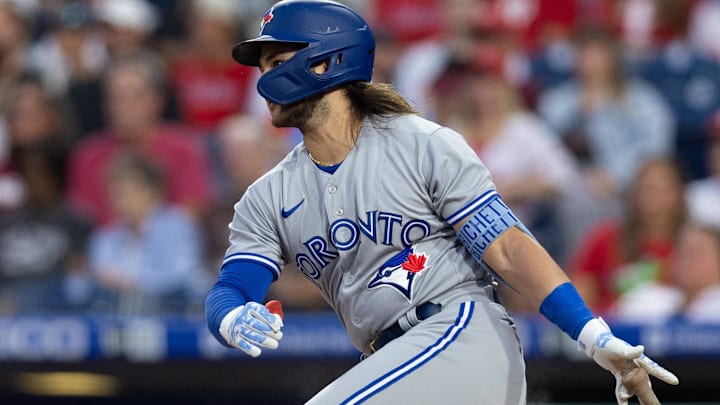What’s Fair Value for Bo?
Clearly the Blue Jays and Bichette, who is represented by CAA, have not seen eye-to-eye on his value. Recall that last season, the Blue Jays unilaterally renewed two contracts for pre-arb players — Bichette at $723,550 and Alek Manoah at $706,200 — under its formulaic process for determining pre-arbitration salaries, as reported by Shi Davidi of Sportsnet.
That came after Bichette turned down the Blue Jays offer of $747,100. As Bichette said afterwards, “It's pretty simple — I disagree with sticking to a formula to value us as players. I think that there's more to it than the way that they view us. I think that for players, that’s not the right way to do it.”
If you look at the analysis of comparable shortstops in their first year of salary arbitration, Carlos Correa won a $5M arbitration award after beating Houston’s offer of $4.25M in 2019, Trevor Story agreed to $5M for 2019, and Javier Baez to $5.2M for 2019 in his first year of eligibility. The r/Torontobluejays Reddit feed also had an excellent chart from u/ThQP comparing ARB1 salaries for MLB’s top shortstops as Bo enters his first year of arbitration eligibility. Shout out to Jays Journal commenter Tassix for the heads up!
Of course there’s been inflation in excess of 5% each of the past two years — today’s price is not yesterday’s price — so adjusting those 2019 figures for 5% annualized inflation would imply a 2023 value of $6.1M. That figure happens to be bang in-line with the industry-wide accepted model to project salaries for arbitration eligible players from MLBTR’s Matt Swartz here, which projects Bichette earning $6.1M in 2023.
If the Blue Jays front office and Bichette’s advisors at CAA are pragmatic, they should probably settle in the $5.9~6.3M range for 2023. Based on similar numbers for ARB1 comparable shortstops, it is highly unlikely that Bichette will be awarded his $7.5M number, so the arbitration panel would have no choice but to award the Jays’ number of $5M.
The Blue Jays Case
Bichette is not without his flaws, particularly on defense. While his footwork at shortstop is much improved, you cannot teach arm strength; according to Statcast, he ranked 21st in MLB last year at 84.8mph from SS, below league-average 85.9mph. His arm is likely better suited at second base, where the MLB average was 81mph last year. He also committed the second-most errors amongst MLB shortstops at 23, trailing only Baez’s 26. His Defensive Runs Saved (DRS) of -16 was dead last amongst qualified shortstops. For reference, the Astros Jeremy Peña was a +16.
Bichette also ranked 30th in Outs Above Average (OAA) at -7, a full 28 out below MLB leader Dansby Swanson's +21. Worryingly, his OAA was -10 on balls where he had to come in to make the play. With the end of the shift in 2023, there may be more balls he has to get to in front of him given Matt Chapman won’t be able to compensate as much in front of him on the left side of the infield.
And from an organizational perspective, if it appears unlikely they’ll be able to agree to a long term extension with Bichette, would it make sense for the Jays to explore trade offers? Of course, they should always explore how other teams might value their players, but unlike the Washington Nationals, who dealt Soto last summer, the Jays are currently in their window of contention, and all-in on a deep postseason run. It would be extremely hard to justify to fans trading away Bichette when the team is clearly contending and not rebuilding.
